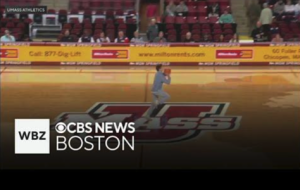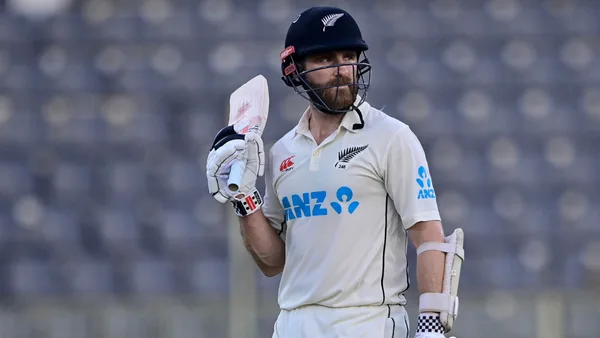We’ve all dreamed of that moment—the amazing half-court shot that brings cheers and applause from the crowd. For one lucky UMass student, that dream almost became a reality. During a recent game, this student seized the opportunity when invited onto the court to take the shot. Excitement filled the air as they prepared to launch the ball from nearly half the length of the basketball court. After a tense buildup, the ball swooshed through the net, confirming their success and sparking wild celebrations among fans and friends alike.
However, the story took a surprising turn when the promised $10K prize didn’t materialize. The hype surrounding this event transformed from exhilaration to disbelief almost instantly. The UMass student’s initial euphoria quickly gave way to confusion as they learned that their glorious achievement did not come with the expected reward. This unexpected twist raised critical questions about the ethics and legality of promotional events and the obligations of the institutions running them.
Many in the UMass community rallied in support of the student, igniting conversations about fairness and transparency in promotional activities. The incident not only captured attention for the amazing shot but also shed light on the need for clear communication about prizes and conditions associated with such events. Advocates argued that promises made in a celebratory environment should be honored, aiming to hold institutions accountable for any stiffing of participants.
In reflecting on this incident, it’s clear that while making that incredible half-court shot is an achievement in itself, the larger implications surrounding promises of reward highlight the necessity for fairness in promotional events. As the UMass community continues to process this event, it serves as a stark reminder of the importance of advocating for ethical practices in all fan-engagement initiatives.
What Happened After The Shot: Understanding The $10K Promise
In an exhilarating moment that would typically bring joy and excitement, a UMass student made a remarkable half-court shot, a feat celebrated by many sports enthusiasts. The promise made by the university was that the lucky shooter would receive a $10K prize if they succeeded. However, as the euphoria of the moment faded, the reality of the situation set in. The student, who had dreamed of this prize for years, suddenly found themselves in a perplexing predicament. Despite hitting the shot, the $10K reward was not forthcoming, leading to an outcry that resonated throughout the campus.

The situation raised numerous questions about the legality and the ethics surrounding such promotional events. Did the university have the right to backtrack on their promise? Were the terms and conditions clearly communicated? The UMass community rallied to support the student, highlighting issues of fairness in promotional competitions. Many expressed outrage over the lack of fulfillment of the $10K commitment, suggesting that universities must uphold their promises to students, especially in situations that can significantly impact their financial well-being.
As more details emerged, it became clear that this incident could serve as an important lesson. The UMass student’s experience exposed potential loopholes in promotional guidelines and the necessity for transparency regarding prizes offered during events. This incident could lead to a greater understanding of how institutions handle such commitments, ultimately advocating for more ethical practices in advertising their events.
Legal and Ethical Implications Of Stiffing The Student’s Prize
The intriguing saga of a UMass student stiffed $10K after making a half-court shot has raised significant questions surrounding the legal and ethical implications of promotional events. Organizations often promote contests to engage fans and create excitement, but what happens when they fail to honor their commitments? The case of the UMass student sheds light on the importance of transparency and accountability in promotional offers.
Legally, when a prize is advertised, it serves as an offer to the public. By participating in the shot, the UMass student accepted this offer, and thus, a binding contract was created at the moment of the successful shot. If the organizers backtrack and do not fulfill their promise, they may be subject to breach of contract claims. This raises vital questions about whether companies or educational institutions are prepared to uphold their promises, especially when large sums like $10K are involved.
Ethically, the situation unravels further complexities. The implications extend beyond mere dollar amounts; they touch upon trust and integrity in the community. When organizations playfully invite fans to participate with potential rewards, participants naturally assume that they will be treated fairly and justly. Failing to honor a prize not only risks damaging the trust with that individual student but can undermine the credibility of the institution as a whole. Communities are built on shared values, and betrayal through dishonored promises can lead to significant backlash.
Moreover, the UMass student experience is a powerful reminder of the need for clear communication and detailed terms regarding promotional events. If organizations clearly outline their policies, perhaps situations like this can be avoided in the future. Transparency is key to maintaining goodwill and encouraging engagement in entertaining events like half-court shots.
As we analyze the actions of the organizers in light of this incident, it becomes evident that ethical practices in promotional contests must be prioritized. The legal implications of not fulfilling a prize should serve as a warning for businesses and institutions alike. In the case of the UMass student, the aftermath of the half-court shot is not just a personal disappointment; it serves as a potential catalyst for change in how promotional events are approached and regulated.
Reactions From The UMass Community: Support And Outrage
The recent incident involving the UMass Student Stiffed $10K After Making Half-Court Shot has ignited a wave of reactions from the UMass community. Students, alumni, and faculty alike have expressed their disbelief and outrage regarding the situation. Many argue that the $10K promise made during promotional events should be honored, as it’s a matter of integrity and trust. On social media platforms, hashtags like #JusticeForUMass have been trending, showcasing the community’s collective support for the student who captured hearts with their incredible shot.
Numerous reactions highlight a mix of anger and empathy. For instance, some UMass students have vocally criticized the university for not fulfilling the pledge, emphasizing that such promotional tactics should come with a guarantee. Others have shared their personal stories of similar promotional disappointments, amplifying the outrage. Many in the community worry about the implications of stiffing a student, fearing it could discourage future participants from engaging in promotional events.
On the flip side, there are voices advocating for a closer examination of the rules surrounding these events. Some community members suggest that clearer communication could have prevented misunderstandings and should be implemented in the future. Nonetheless, the consensus is clear: the stiffing of this student is not just a matter of money—it’s about upholding the values of fairness and honesty in these promotional activities.
While the $10K promise remains unmet, the outpouring of support shows a strong community standing beside the student. For many, this incident has become more than just a viral moment; it has transformed into a rallying cry for fairness in promotional practices. The UMass community’s reaction serves as a reminder of the importance of maintaining trust and honoring commitments made during such exciting events.





